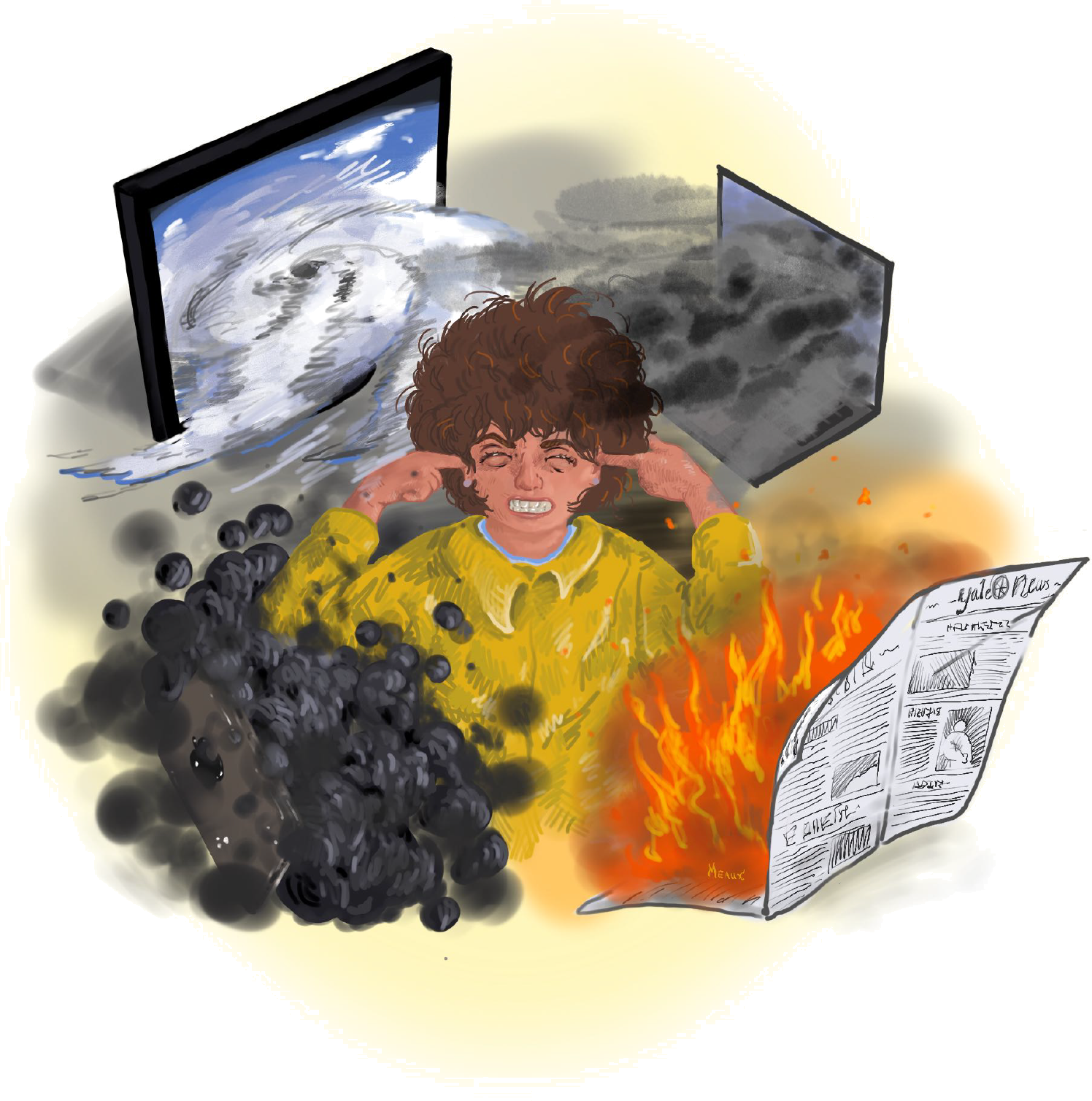
With many Americans skeptical about the effects of climate change, a perspective piece by researchers at the Yale School of Forestry & Environmental Studies and The Institute at Brown for Environment & Society proposed strategies to combat science misinformation.
Led by F&ES professor Justin Farrell, the paper — which reviews existing literature and suggests strategies for action based on previous empirical findings — was published on Jan. 14 in Nature Climate Change. The paper’s strategies specifically target misinformation regarding climate change in the United States through four interrelated strategies: public inoculation, legal strategies, political mechanisms and financial transparency.
“No matter how much empirical research we do on climate change, will it matter if our findings are consistently pre-empted by misinformation?” asked Katie McConnell FES ’23, a forestry school doctoral student and co-author of the paper. “So, in some ways, I think we need to address misinformation if we want the other climate change knowledge we produce to be taken seriously by people outside of elite settings.”
One strategy against scientific misinformation is public inoculation. Just like injections that contain a weakened or dead dose of a virus to build resistance against future infection, the same can be done with information, according to Sander van der Linden, a social psychology professor at the University of Cambridge. Early exposure to misinformation can help people resist incorrect information.
Although there is strong evidence for the efficacy of public inoculation, the paper warns that it only “succeeds when the patient is not already sick.” However, even people who already have inaccurate beliefs can be inoculated, said van der Linden, who was not involved in the paper. Like therapeutic vaccines given to patients who already have the disease, psychological inoculation also appears to have retroactive benefits.
Recent findings that fossil fuel companies are aware that climate change is real and human-caused, yet intentionally mislead the public, have led to several lawsuits that aim to hold the industry accountable for the impacts of climate change. Although these legal strategies are costly and time-consuming, they are “the most effective strategy for directly confronting and discouraging the spread of scientific misinformation,” according to the paper.
“It is absolutely possible for a lawsuit against the fossil fuel industry to be successful like the one against the tobacco industry,” said Robert Brulle, a professor of environment and society at Brown University and co-author of the paper. “The key will be to obtain the necessary documentation to prove that the fossil fuel industry engaged in the same type of behavior as did the tobacco industry.”
Although misinformation is also a large component of U.K. and Australian climate politics, Brulle said, fossil fuel companies have targeted their misinformation campaigns on Americans, given the United States’ central role in driving energy policy. The U.S. conservative movement’s climate change denial platform and the large clout of fossil fuel companies in America help drive this process, he added. The paper highlights three political mechanisms for confronting a complex network of institutions and individuals whose interests are threatened by climate change research.
First, more social science research and public vigilance are needed to understand how and when the political process is being manipulated, such as when an energy company hires performers posing as grassroots activists. Second, fossil fuel divestment not only has a financial impact on fossil fuel companies, but it also publicly stigmatizes the industry. Third, efforts must target geographic areas that are both particularly vulnerable to the short-term impacts of climate change and are widely skeptical about it.
Finally, increased financial transparency can expose the ways in which private philanthropic and industry funding enable the proliferation of scientific misinformation, as well as prevent future misinformation campaigns from gaining traction. The spending by fossil fuel companies and proponents dwarfed that of environmental organizations and renewable energy corporations by a ratio of 10:1, according to the paper.
Brulle and McConnell were in agreement that the outlook on scientific misinformation in America is “not at all rosy.” Misinformation on climate change has circulated for years, McConnell said, but now, it is occurring in a wider “post-truth” context in which all evidence and fact claims are being viewed as equally valid.
Brulle added that the spread of misinformation will continue because there are many groups that will benefit from misrepresenting the clear science on climate change.
“I’ve noticed that sometimes when the topic of climate denial comes up, there’s a tendency to sort of throw up hands in exasperation, and the question is often, ‘why don’t they just get it?’ There can be an insinuation that people who deny climate change are ignorant, or they just haven’t been exposed to the science,” McConnell said.
According to McConnell, the paper shifts this conversation in two ways. First, acknowledgement that people make sense of scientific information in complex, culturally informed ways can be helpful in thinking more critically and creatively about science communication beyond simply reaffirming that climate change is real.
Second, the paper shifts the responsibility for science misinformation from individuals to institutions and networks. Both must be targeted to effectively combat misinformation.
Brulle noted the enormous practical implications of the paper, explaining that this kind of research can inform society’s knowledge of climate misinformation campaigns and help guide appropriate responses to minimize their impact on delaying climate change action.
“We found that much research in this area describes the architecture of misinformation but has not yet rigorously examined strategies that address it,” McConnell said. “So we hope that further research and debate can focus more directly on the question of which strategies are most effective. We’re just getting the ball rolling.”
Seventeen of the 18 warmest years in the 136-year climate record have occurred since 2001, according to NASA’s Goddard Institute for Space Studies.
Eui Young Kim | eui.young.kim@yale.edu .







